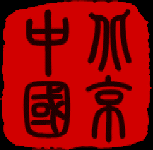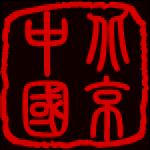Postal Services
China's postal service is efficient and sending mail from China is very reliable.
Some larger hotels have postal services on-site. Gift shops can usually supply stamps and send postcards for you. It helps if mail sent out of the country has its country of destination written in chinese characters, but this is not essential; hotel staff will be happy to do this for you.
It generally takes 4-7 days for airmail letters or postcards to reach their destination. Domestic mail is also fast. For even faster service, the Express Mail Service (EMS) allows you to send registered letters and parcels out of China and can be arranged at post offices.
Post Restante services exist in every city and town. In addition, most hotels have branch offices and can supply stamps.
Post offices are exacting about how you pack a parcel. Take the items you want to post to the post office and pack them there, as you will have to get customs clearance for your parcel. If you have a receipt for your purchases, enclose it.
Parcels sent by sea rather than air cost about 35% of the air cost but take much longer. This can be useful for heavier items that you do not need in a hurry.
As a rough guide to pricing, a normal parcel under 1 kg, sent by air, will cost about 130 yuan (US), 120 yuan (Europe), 105 yuan (Australia).
Both letters and parcels can be registered for a small extra charge. Registration forms and customs declaration forms are in Chinese and French.
A number of international courier companies have offices in China, including United Parcel Service (UPS), DHL, Federal Express and TNT Skypak. Inquire at your hotel reception to find the closest office or to arrange pick up.
Telephone
China's phone system works well. You can usually place both international and domestic phone calls from you hotel room or hotel's business center. There is usually a 15% surcharge on long distance calls whereas local calls are generally free from your hotel.
Domestic long distance rates are cheap but international calls are expensive. Reverse-charge calls are legal and perhaps less expensive than calling overseas from China. But by far the cheapest method to call home is with an IP card.
Mobile phones are extremely commonplace in China and easily bought and set up with a new number. You might be able to insert a new 'chip' to use your existing mobile within China it depends on what protocol standards the phone can work with. If you purchase a phone in China you want to (also) use at home, check it can handle the protocol standards of your home country.
You can also use email and your favorite internet messenger program.
The sections below provide more details.
Card phones are widespread in China and can be the simplest and the cheapest way to make calls in China. There are two types of phone cards: IC and IP.
IC Cards
To use a public telephone you'll need an IC (Integrated Circuit) card available from post offices, convenience stores and street stalls, in values beginning at 20 yuan. A brief local call is typically 0.30 to 0.50 yuan. Phones will show you the value remaining on the card when you insert it, and count down as you talk.
Using your mobile in China
Some companies provide a service that allows your phone to be used in China, but this probably only allows you to call home and cannot be used to make local calls. Check what payment rates apply. You may find it much cheaper to call home using an IP card that you can easily buy locally (see below).
You may be able to switch your SIM card to one you can easily buy locally, complete with a local mobile number.
Calling China
China's International country code : + 86
Beijing's Area Code : 010
1. Dial the international access code: 011 in the US, 00 in the UK, for example.
2. Dial the country code: 86 for China.
3. Dial the city code (010 for Beijing), omitting the leading zero, and then dial the number. So, to reach Beijing from the UK, you would dial 00-86-10-XXXX-XXXX.
* If calling a mobile phone in China, omit the city code. If calling from a mobile, you may need to enter '+' rather than the initial '00'.
Calls Within China
For calls within the same city, omit the city code, which always begins with a zero (010 for Beijing, 020 for Guangzhou, for example).
Hotel Phones
These all have direct dialing, and most have international dialing. Hotels are only allowed to add a service charge of up to 15% to the cost of the call. Even long distance rates within China are very low.
International Calls from China
First dial 00 and then the country code (U.S. or Canada 1, U.K. 44, Ireland 353, Australia 61, New Zealand 64). Next, dial the area or city code, omitting any leading zero, and then dial the number.
IP Cards
You may want to forget about taking access numbers for your local phone company with you - you can call internationally for a fraction of the cost by using an IP (Internet Protocol) card, available wherever you see the letters 'IP'.
Depending on where you call, a 50 yuan card can give you about an hour of talk time.
You should bargain to pay less than the face value of the card - perhaps 80 yuan for a 100 yuan card from street vendors.
Instructions for use are on the back. Basically, you simply dial the access number given, choose English from the menu, and follow the instructions to dial in the number behind a scratch-off panel.
If using a public phone, you'll need an IC card to make the initial local call because phone boxes don't accept cash. From your hotel room or mobile is simplest.
Collect Calls
Dial 108 to negotiate a collect call; you may need help from a Mandarin speaker to do this.
Directory Assistance
For directory assistance, dial 114. English service is available. Only local numbers are available; if you want numbers for other cities, dial 116 (or the city code followed by 114).
Operator Assistance
For operator assistance, it is probably best to ask for help at your hotel reception.
Toll Free Numbers
Numbers beginning with 800 within China are toll-free, but calling a free-phone number such as 1-800 or 0800 abroad from China is a full tariff international call, as is calling one in Hong Kong from mainland China, or vice versa.
Faxes
These can be sent from most hotel business centers.
Internet Access
Internet bars in Beijing are common but sometimes hard to locate. Most hotels and hostels offer an internet connection; the cost is about 10 yuan per hour if charged but is most often free (either ISDN or wi-fi).
|



